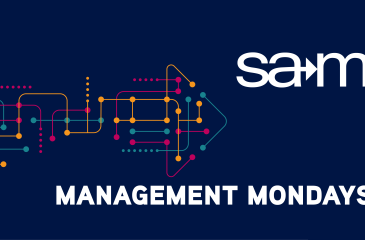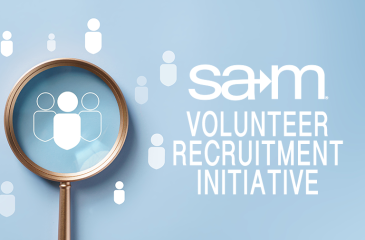Archive for September, 2025
-
Leadership Links #16
CEO shifts and org redesigns headline this week’s Leadership Links, from GSK’s planned handoff to Oracle’s co-CEOs and Mercedes’s tech and production refresh. Plus, healthtech M&A accelerates and MakeMyTrip adds new operating and finance leaders. Get board-ready takeaways on succession, structure, and execution.
-
Reclaiming Joy at Work: The Case for Collaborative, Caring Workplaces
In many workplaces, joy has become an afterthought. The pressure to meet deadlines, hit performance targets, and keep up with nonstop change leaves little room for fulfillment or connection. Over time, this constant pressure erodes enthusiasm. What was once meaningful work begins to feel mechanical. Employees focus on surviving the week rather than thriving in their roles. While organizations may not intend to drain energy from their teams, a culture of stress can become normalized if no one steps back to challenge it.
-
Last Call to Make Your Voice Heard: Join a SAM Committee Today
Time is running out to be part of one of the most impactful ways you can shape the future of the Society for Advancement of Management. Our call for committee nominations is closing soon, and this is your final chance to step forward or nominate a colleague who can help lead SAM into its next chapter.
-
Gucci’s Leadership Reset under Kering: Francesca Bellettini’s Mandate and the Urgency of Heritage Forward Strategy
Gucci, one of the most recognized names in the luxury sector, is entering a defining chapter in its history. Sales have fallen by roughly twenty five percent and profits have been cut nearly in half, creating a sharp contrast to the brand’s legacy of strength and influence. These numbers reflect more than short-term turbulence. They signal a deeper vulnerability at a time when competition in the luxury market is more intense than ever.
-
Leadership Links #15
IndusInd Bank of India has appointed Viral Damania as CFO effective September 22, 2025. This follows a $230 million loss tied to accounting irregularities of internal derivative trades. The accounting lapse also prompted earlier resignations by former CEO Sumant Kathpalia and deputy Arun Khurana. Damania, with 27 years of banking experience including senior finance roles at Bank of America India and Citibank North America, is expected to help stabilize financial reporting, reinforce internal controls, and rebuild credibility.
-
From Stuck to Streamlined: How Process Thinking Transforms Daily Work
In many organizations, the pace of work is relentless. Meetings fill the calendar, emails stack up, and people rush from task to task with little time to think. On the surface, this level of activity may look like productivity. Teams appear busy, deadlines are met, and metrics are updated. But beneath the surface, important questions often go unasked. Are we solving the right problems? Is this work creating value? Could we be doing it in a better way?
-
Celebrate Excellence and Inspire Achievement: Join the Awards Committee
The Society for Advancement of Management has a proud tradition of recognizing individuals and organizations that exemplify excellence in leadership, innovation, and community impact. The Awards Committee is at the center of this tradition, playing a vital role in shaping how we honor those whose contributions make a difference in the field of management.
-
SAM forms new Student Advisory Council to engage Collegiate Stakeholders
To our Collegiate Members of SAM, My name is Henry “Hank” Johnson, and I have the privilege of serving as President of the Society for Advancement of Management. This is […]
-
Microsoft’s Return‑to‑Office Policy: What Leaders Should Know About the Shift to Three Days In Office
Many large employers are tightening hybrid norms to regain speed, alignment, and apprenticeship. Microsoft’s plan to require most employees to work in office at least three days per week is the clearest signal so far. The policy reframes presence as a tool for work that benefits from proximity, not a blanket statement about trust. It also raises hard design questions for leaders. Which activities truly need in person time. How should schedules, spaces, and coaching evolve so that office days raise quality rather than just count attendance.
-
Leadership Links #14
This week’s edition spotlights leadership choices made under pressure from cyber risk, succession planning, shifting client demand, and profit headwinds. You will see how M&S responds to a costly cyberattack […]
-
Purpose Over Profit: Rethinking What Makes a Business Truly Productive
For years, productivity has been measured by traditional financial outcomes. Revenue growth, profit margins, and return on investment are the benchmarks that dominate boardroom conversations. These metrics are useful and necessary, but they do not tell the whole story. When organizations focus only on profitability, they often miss what makes their success sustainable. Efficiency and earnings can rise in the short term even as employee morale, customer trust, and long-term resilience begin to decline.
-
Inspire the Next Generation of Leaders: Join the Collegiate Competitions Committee
At the heart of SAM’s mission is the commitment to developing future leaders in the field of management. One of the most dynamic ways we do this is through our collegiate competitions, where students test their skills, creativity, and problem-solving abilities in a real-world setting. The Collegiate Competitions Committee is responsible for making these experiences possible, and your involvement can directly influence the success of the next generation of professionals.
-
Leadership Links #13
This week’s edition examines how leaders navigate political risk, culture scrutiny, unconventional talent bets, and the fast rise of AI inside decision making. France’s confidence vote is rattling boardrooms that […]
-
Tech Won’t Save You: Why Human-Centered Workflows Still Matter Most
Modern organizations are flooded with tools designed to make work faster, smarter, and more efficient. Project management platforms, AI-driven analytics, workflow automation, and communication apps are now staples of daily operations. These technologies promise to streamline tasks, reduce human error, and unlock productivity gains across the board. While some of these promises are fulfilled, others fall short. The assumption that better tools automatically create better results often leads companies to overinvest in technology while underinvesting in the people who use it.
-
Shape Inspiring Experiences: Join the Conference Programming Committee
The SAM International Business Conference is one of the highlights of our year, bringing together thought leaders, educators, students, and professionals to share ideas, learn from one another, and explore the future of management. The Conference Programming Committee is the driving force behind making this event a meaningful and memorable experience. If you enjoy planning, collaboration, and creative problem-solving, this is your chance to help design one of SAM’s most important events.
-
Flattening Corporate Layers Is Changing How Work Gets Led
Many large companies are removing layers to move faster and spend less. Across Corporate America, the average manager to employee ratio has stretched from roughly 1 to 5 in 2017 to about 1 to 15 by 2023. Google, Amazon, Intel, and Estée Lauder are among the firms that cut middle management in pursuit of speed, clearer accountability, and lower cost structures. The intent is simple. Fewer layers should mean quicker decisions and less bureaucracy. The reality is more nuanced.
-
Leadership Links #12
This week’s edition looks at how leadership teams are reshaping strategy and structure under pressure from markets, politics, and talent dynamics. You will see why Renault tapped an experienced operator to steer Dacia through a competitive cycle, how BlackRock is pressing state officials to keep pension investing focused on fiduciary duty, and why Milan is pulling finance leaders with tax incentives even as global fundraising cools. We also cover a surge in asset management dealmaking that points to a scale and capability race, plus a rapid flattening of corporate org charts that is changing how managers lead.
-
Ditch the Carrots and Sticks: Building Cultures That Actually Motivate
In many organizations, motivation is still treated as something external. Employees are pushed to perform through performance bonuses, public recognition, and the threat of poor evaluations or job loss. These methods are rooted in the idea that people will only do their best when they are given a strong enough reason to care. For decades, companies have leaned heavily on reward systems and disciplinary policies to drive results. This model may yield short-term gains, but it often fails to create lasting engagement. Once the reward is earned or the threat removed, motivation tends to fade.






